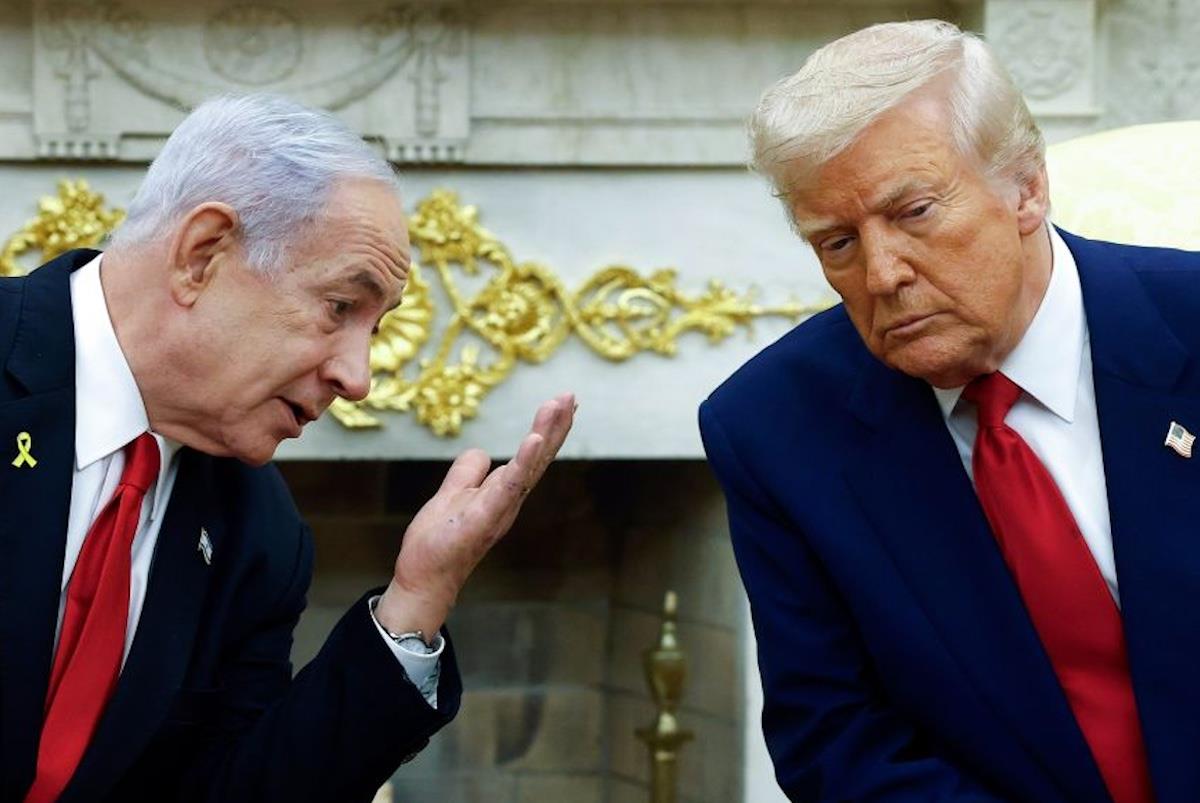
Trump's Gaza Plan Just Another Middle East Fantasy
Standing alongside Benjamin Netanyahu at the White House, Trump proclaimed we're“beyond very close” to ending the war and called it a“historic day for peace.”
If this sounds familiar, it should. We've been down this road before-with the Oslo Accords, the Road Map, the Annapolis Conference, and Trump's own first-term“Deal of the Century.”
Each time, American presidents have believed that the right combination of carrots and sticks, backed by sufficient presidential prestige and regional coalition-building, could resolve what is fundamentally an intractable territorial and national conflict.
The usual suspectsTrump's decision to present his plan to leaders from Saudi Arabia, Qatar, the UAE, Egypt, Jordan, Turkey, Indonesia and Pakistan reflects a familiar Washington fantasy: that Arab and Muslim states share America's vision for Israeli-Palestinian peace and possess both the willingness and capability to impose it on the parties. The reality is more complicated.
These regional actors have their own interests, which rarely align perfectly with American objectives. The Gulf states want normalization with Israel, but on their own terms and timeline.
Turkey's Erdogan needs to maintain his credentials as a champion of the Palestinian cause for domestic political consumption. Egypt and Jordan want stability on their borders but have shown little appetite for assuming responsibility for Gaza's governance-and for good reason.
Latest stories
Trump's Bagram gambit is all about China

Tomahawks for Kyiv: a dangerous idea

The LDP leadership race could reshape Japanese politics The Hamas problem
The plan reportedly calls for“post-Hamas governance” of Gaza, but this casually assumes what needs to be demonstrated: that Hamas can be militarily defeated and politically eliminated.
After nearly a year of intensive Israeli military operations, Hamas remains embedded in Gaza's social fabric and retains significant military capabilities. Even if the organization's leadership structure is degraded, the ideology and resistance networks it represents don't simply disappear because a peace plan says so.
Moreover, if Hamas is somehow removed from power, who replaces it? The Palestinian Authority, which has minimal legitimacy among Gazans and is viewed by many Israelis as incapable of maintaining security?
An international force that no country is eager to contribute to? A coalition of Arab states that have consistently refused to police Palestinian politics? The plan seems to gloss over these inconvenient questions.
Two-state miragePerhaps most tellingly, the plan“leaves the door ajar” for a Palestinian state-diplomatic speak for kicking the can down the road. This formulation satisfies no one.
It's too much for the current Israeli government, which includes ministers ideologically opposed to Palestinian statehood, and too little for Palestinians who have heard vague promises about pathways to statehood for decades while watching settlements expand and their territorial prospects diminish.
The two-state solution, once the consensus framework for Israeli-Palestinian peace, has become increasingly detached from on-the-ground realities.
The settlement enterprise in the West Bank, the political fragmentation of Palestinian leadership, the radicalization on both sides and the complete absence of mutual trust have created conditions where a viable Palestinian state is virtually impossible to establish in the foreseeable future.
Netanyahu's enthusiastic endorsement of Trump's plan should raise red flags. The Israeli prime minister has spent his political career skillfully managing the peace process-appearing to engage while ensuring nothing fundamental changes.
His support for Trump's plan likely reflects his calculation that it either won't be implemented or that its implementation can be managed in ways that advance Israel's interests without requiring painful territorial or security concessions.
Limits of transactionalismTrump's approach to Middle East peacemaking reflects his broader transactional worldview: that every problem has a deal waiting to be struck if you can just get the right people in the room with the right incentives.

Sign up for one of our free newsletters
-
The Daily Report
Start your day right with Asia Times' top stories
AT Weekly Report
A weekly roundup of Asia Times' most-read stories
But the Israeli-Palestinian conflict isn't a business negotiation. It's a century-old struggle over land, identity, security and national aspirations that has defeated far more detailed and comprehensive peace plans than this one.
The tragic irony is that by raising expectations for a breakthrough that almost certainly won't materialize, Trump's initiative may ultimately make matters worse. Failed peace processes don't just return parties to the status quo ante-they deepen cynicism, embolden spoilers and make future diplomatic efforts even more difficult.
The Gaza war has produced immense suffering and deserves serious international attention. But that attention should be grounded in realistic assessments of what's achievable, not in the fantasy that the right American plan, announced at the right moment, will suddenly unlock a comprehensive peace that has eluded the region for generations.
Trump may be“beyond very close” to ending the war, but Washington has believed it was close to Middle East peace many times before. Until American policymakers internalize the lessons of past failures and adopt more modest ambitions, we're likely to see this cycle repeat itself-with predictably disappointing results.
Leon Hadar is a foreign policy analyst and author of“Sandstorm: Policy Failure in the Middle East.”
Sign up here to comment on Asia Times stories Or Sign in to an existing accoun
Thank you for registering!
An account was already registered with this email. Please check your inbox for an authentication link.
-
Click to share on X (Opens in new window)
X
Click to share on LinkedIn (Opens in new window)
LinkedIn
Click to share on Facebook (Opens in new window)
Facebook
Click to share on WhatsApp (Opens in new window)
WhatsApp
Click to share on Reddit (Opens in new window)
Reddit
Click to email a link to a friend (Opens in new window)
Email
Click to print (Opens in new window)
Print

Legal Disclaimer:
MENAFN provides the
information “as is” without warranty of any kind. We do not accept
any responsibility or liability for the accuracy, content, images,
videos, licenses, completeness, legality, or reliability of the information
contained in this article. If you have any complaints or copyright
issues related to this article, kindly contact the provider above.


















Comments
No comment